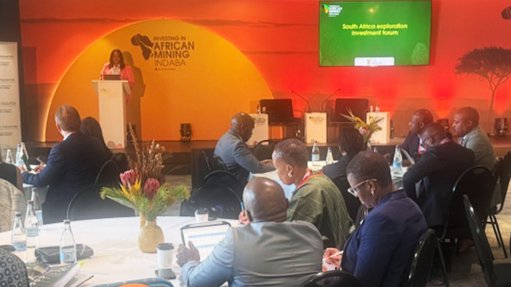African English
I previously wrote about how our versions of the English language have found their way into mainstream English – ‘our’ being the possessive pronoun for the sons and daughters of the African soil. For instance, it is now perfect English to say next tomorrow (which is commonplace in Nigeria) instead of the day after tomorrow – at least according to the Oxford English Dictionary (OED).
South African words and phrases that may be unintelligible in many parts of the English-speaking world are also now included in many English dictionaries. Many are loan words and phrases from the other languages that are widely spoken in this country, cases in point being babalaas and nunu. The former means the after-effects of drinking alcohol and the latter an insect, spider, worm or similar small creature. The two words were listed in the OED for the first time in 1949 and 1913 respectively.
The OED’s latest update was released earlier this year. Many of the new entries are words that are chiefly or exclusively used in Kenya, Tanzania and Uganda – three East African neighbouring countries that share a common Anglophone background. They also have a common lingua franca in Swahili, which the South African Department of Basic Education is intent on introducing in this country’s high schools as an optional additional language.
Kenya’s multiple contributions to the latest update include the word ‘biting’, which means a bite-size piece of food, a small snack, appetiser or canapé. So, once I’ve finished writing this piece, I will dash to the staff kitchen and treat myself to a biting! Another contribution is ‘to shrub’, which is to pronounce in another language in a way that is influenced by one’s mother tongue. Come to think of it, this is what I have been doing all along when I communicate in English, not having had the benefit of a Model C-type education.
If you happen to be in Kenya and you hear them referring to someone who is ‘tarmac-ing’, that word has nothing to do with road construction; it simply means the person in question is “walking the streets looking for work”. In other words, he or she is job-hunting. According to the International Labour Organisation, Kenyan youngsters are less likely to be tarmac-ing than their South African counterparts, given their higher labour force participation rate of 55.4% in 2020, compared with 40.6% in this country.
It’s also evident from the OED update that Uganda has its share of distinctive uses of English words or phrases. When on the streets of Kampala and other Ugandan cities and towns, you are likely to hear acquaintances saying to each other: “You are lost!” This is a greeting, and it’s similar to the more familiar “Long time no see!” Ugandans also use the verbs ‘cowardise’, which means to behave the way a coward would, and ‘extend’, which is to move from where one is seated or standing to create room for another person. Now that this usage is in the OED, it’s going to be more than just the Ugandans who speak this way.
From Tanzania we have ‘daladala’, a passenger-transporting van or minibus. Derived from Swahili, this word is a reduplication of ‘dala’ (for dollar), which the fellows at the OED surmise is a van or minibus driver’s call. So, the next time my car is in for service, I might need to catch a daladala from work to Gemistoni. (Remember the reference to shrubbing above? My tongue simply can’t cope with Germiston.)
Another Swahili word that made the OED’s 2022 list of new entries is ‘kanga’, a cotton fabric printed with bright colours that is typically used for women’s clothing. I got to know of this word when former President Jacob Zuma stood trial for rape in 2006.
Article Enquiry
Email Article
Save Article
Feedback
To advertise email advertising@creamermedia.co.za or click here
Comments
Press Office
Announcements
What's On
Subscribe to improve your user experience...
Option 1 (equivalent of R125 a month):
Receive a weekly copy of Creamer Media's Engineering News & Mining Weekly magazine
(print copy for those in South Africa and e-magazine for those outside of South Africa)
Receive daily email newsletters
Access to full search results
Access archive of magazine back copies
Access to Projects in Progress
Access to ONE Research Report of your choice in PDF format
Option 2 (equivalent of R375 a month):
All benefits from Option 1
PLUS
Access to Creamer Media's Research Channel Africa for ALL Research Reports, in PDF format, on various industrial and mining sectors
including Electricity; Water; Energy Transition; Hydrogen; Roads, Rail and Ports; Coal; Gold; Platinum; Battery Metals; etc.
Already a subscriber?
Forgotten your password?
Receive weekly copy of Creamer Media's Engineering News & Mining Weekly magazine (print copy for those in South Africa and e-magazine for those outside of South Africa)
➕
Recieve daily email newsletters
➕
Access to full search results
➕
Access archive of magazine back copies
➕
Access to Projects in Progress
➕
Access to ONE Research Report of your choice in PDF format
RESEARCH CHANNEL AFRICA
R4500 (equivalent of R375 a month)
SUBSCRIBEAll benefits from Option 1
➕
Access to Creamer Media's Research Channel Africa for ALL Research Reports on various industrial and mining sectors, in PDF format, including on:
Electricity
➕
Water
➕
Energy Transition
➕
Hydrogen
➕
Roads, Rail and Ports
➕
Coal
➕
Gold
➕
Platinum
➕
Battery Metals
➕
etc.
Receive all benefits from Option 1 or Option 2 delivered to numerous people at your company
➕
Multiple User names and Passwords for simultaneous log-ins
➕
Intranet integration access to all in your organisation


















